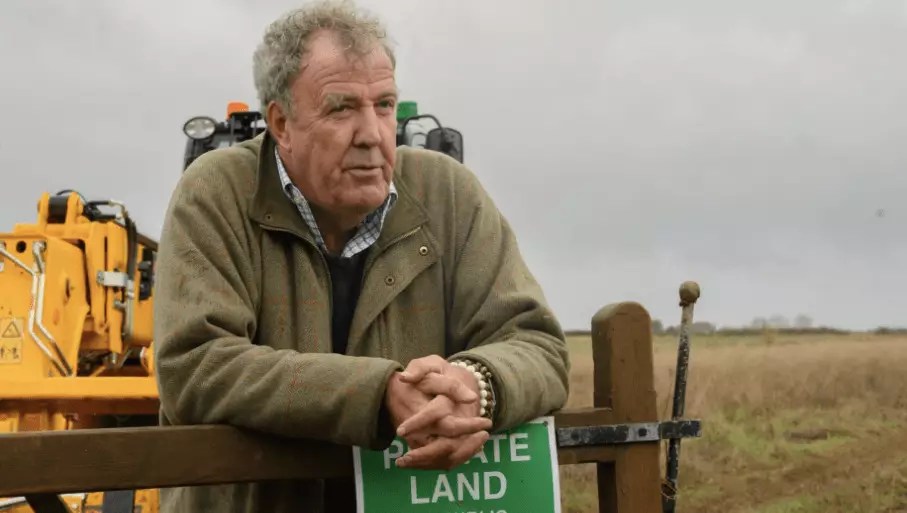Jeremy Clarkson, the British television personality known for his outspoken nature and love for fast cars, has recently transformed himself into a spokesperson for the farming community. This shift hasn’t come without its fair share of contradictions and controversies, particularly concerning his motives for purchasing a farm. Initially, Clarkson made headlines in 2009 after he admitted in a newspaper column that acquiring land was a strategic move to evade inheritance tax. Fast-forward over a decade, and his narrative has changed significantly, raising questions about sincerity and consistency.
The farm in question, Diddly Squat, has become not just a personal venture for Clarkson but also the focal point of the Prime Video series “Clarkson’s Farm.” This show has captivated audiences with its humorous yet insightful portrayal of the challenges faced by farmers. However, Clarkson’s comments about buying the farm initially for tax benefits have left a lingering skepticism about his motivations. Following a recent protest against proposed inheritance tax levies on farmers, Clarkson’s motivation has increasingly been scrutinized.
In a recent interview with The Times of London, Clarkson contradicted his previous outrageous claim by stating, “I never did admit why I really bought it… I wanted to have a shoot – I was very naive.” This statement raises critical questions about his authenticity. Did he initially frame his land purchase as a smart financial move to sidestep government taxation because it suited a narrative that his audience expected from him? Or has the real Clarkson, one who’s genuinely passionate about farming, only begun to surface as he finds his footing in this new role?
Clarkson’s previous remarks positioned him as a savvy businessman, but with the shift toward advocating for the farming community, it’s clear he has a complex relationship with both his audience and his peers within the industry. His declaration that government officials fail to grasp the strain felt by those in agriculture is a commendable shift towards solidarity with farmers. However, his refusal to entertain political aspirations reveals a lack of commitment to effecting change directly through legislative means, which is where some critics argue his influence could be maximized.
While Clarkson’s transition to a farming advocate is intriguing, one can’t overlook the possibility that this journey is also a shrewd marketing strategy. The cultivation of Diddly Squat into an entertainment venture quite effectively masks the initial motives behind its purchase. By aligning himself with a relatable cause, Clarkson efficiently cultivates goodwill, consequently enhancing his brand and extending his relevance beyond the realms of automotive enthusiasm.
The question remains: can Clarkson be viewed as a genuine advocate for farmers, or is this merely a case of a celebrity repackaging himself to stay relevant? For all his bluster about being an ineffective political leader, Clarkson undeniably holds a unique platform that could be invaluable to the agricultural sector. Whether he’s willing to commit fully to this cause hints at a broader commentary on celebrity culture and the responsibilities – or lack thereof – that accompany such influence.
Clarkson’s evolution from a self-identified tax evader to an advocate for farmers reflects a complex persona. Whether his motives stem from a genuine desire to support the agricultural community or are simply rooted in self-promotion remains a topic of lively debate.


Leave a Reply